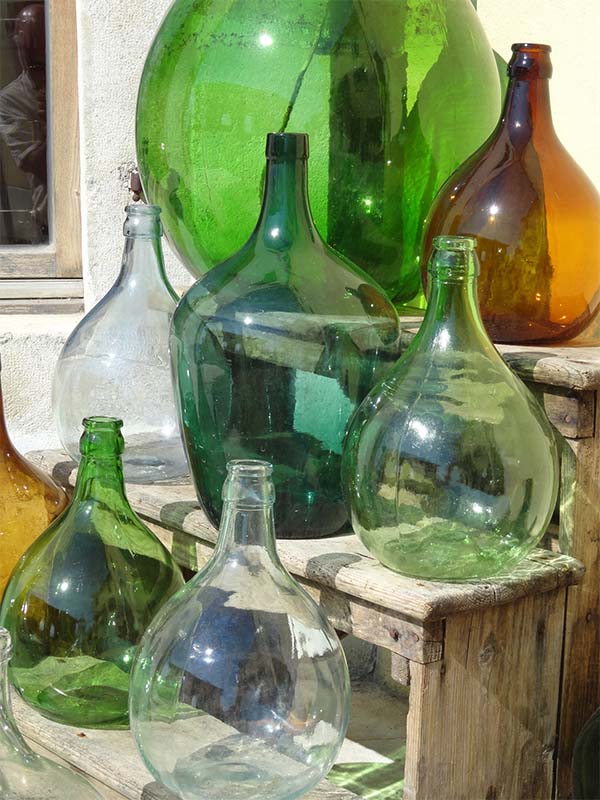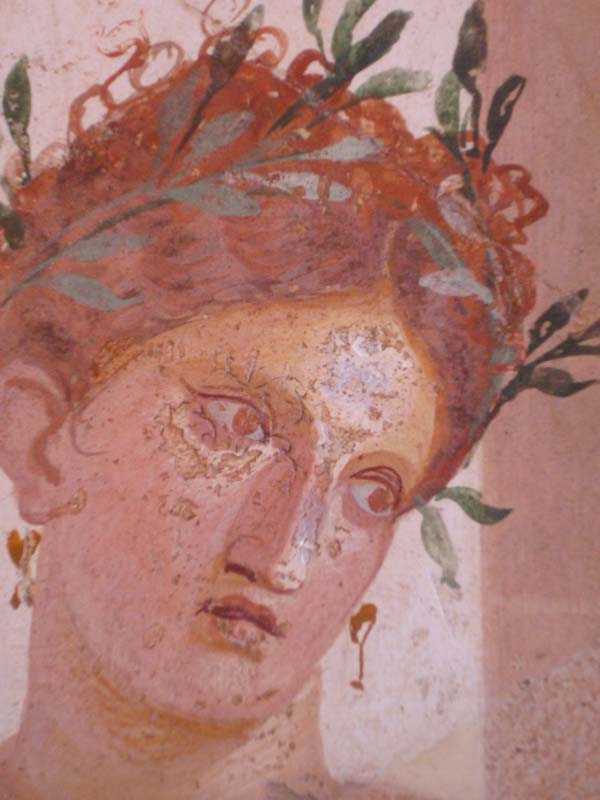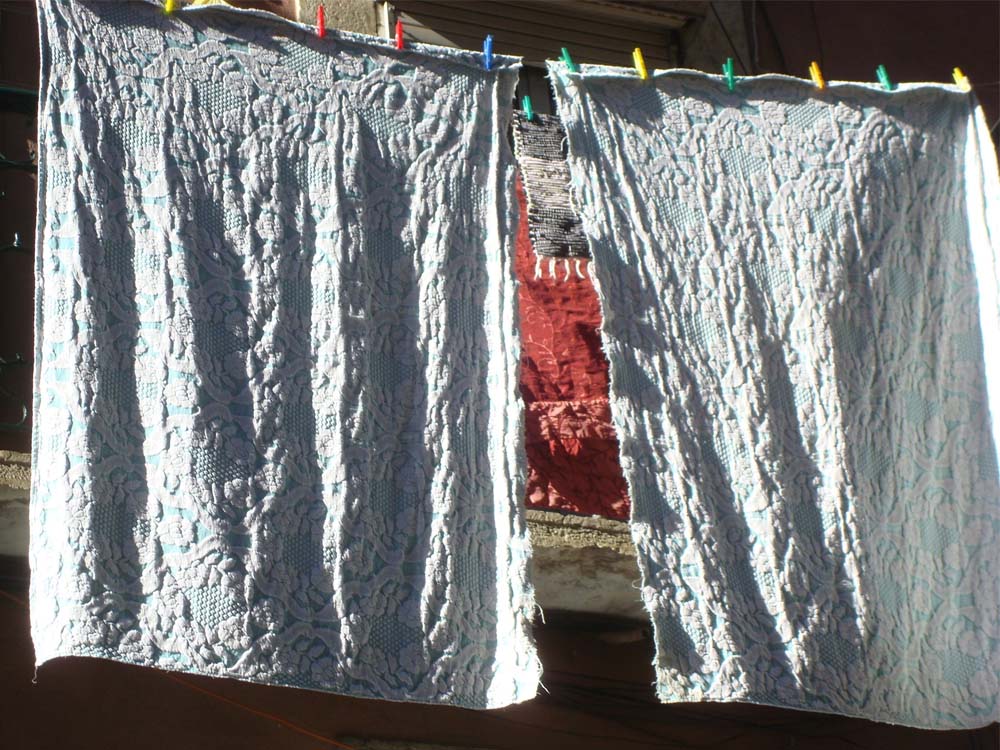Being Mad
Between the ages of 13 and 16 I suffered what was effectively a nervous breakdown. When I was already in my thirties, my mother told me: ‘Oh, I could see that something was wrong. But I felt too diffident to intervene’. So she did nothing. Even expressing concern, or laying on one or two extra treats, would have been going too far.
One of the contributing factors is easy to place in time. On my thirteenth birthday, so October 29th, 1965, I informed the priest in the confessional that I was homosexual. The realisation, to the extent of giving it a name, was prompted by an incidental remark a schoolmate had made. He was Italian, son of the Italian consul in Glasgow, and was competing with me to be the closest friend of a vaguely effeminate, waspish-tongued and very clever boy from the south side of the city.
With great foolishness – but this was the time of sexual awakening, and I was questioning, exploring and investigating like any “normal” boy, only along a rather different path – I had commented on the unshapely quality of the backsides of several of our classmates. ‘Are you one of them?’ asked the Italian. I had no idea what he meant. ‘Like Oscar Wilde, I mean?’ (Years later, a friend confronted with the same question answered: ‘And are you heterosexual? Like Attila the Hun?’) It did not take me long to put two and two together and reach the obvious conclusion. An image of two warriors clad in armour on the Vietnam item from the Flags of the World cards which had given me such delight when I was six or seven, the illustration of Odysseus, stripped to the waist and with a pleasing musculature of the chest in a book on Greek mythology and the fact that, musing, I had thought about what I would like to happen between us and decided that, when I became an adult, perhaps I could pay an actor to go through certain scenarios with me, in the personage of this hero, were unequivocal proof.
The priest naturally assured me that this was a phase I would come through. I knew only too well that, even age thirteen, I was beyond salvation. I suspect that I already had an inkling of the links that connect eroticism, sensuality and creativity within the personality. Having sex is for many “ordinary” people the single most significant creative act they will ever carry out. Small wonder if, with those who are intended to be “creative” in other, less carnal ways, there are strong undercurrents of connection between what they do, or would like to do, in bed, and what they produce on a canvas, or a computer screen, or when groping their way towards a new composition on the piano.
Being gay meant that I lived in tremendous, unrelenting danger. I think the conviction was justified. A friend at Cambridge who grew up in Tonbridge, Kent, when he told his parents, was sent to a psychiatrist who, among other cures, encouraged him to substitute images of a naked woman as soon as he reached a stage of genuine excitement during masturbation. The consequences of being discovered to be homosexual within the Glasgow Catholic ghetto, as a pupil at a Jesuit academy, could have been considerably less ingenious and more unpleasant. For me, it was as much as my life was worth for anybody to find out.
As you would expect, the burgeoning of sexual drives anyone goes through at that age interacted with Jesuit dogma and Catholic prohibitions, leading to a clash that threatened my mental balance. My saving strategy was to accept that I was mad, but not obviously enough for anyone to find out. Just I was gay, but devilishly clever and contorted enough to keep the fact a secret till I was laid in my grave. After coming out to my parents aged twenty-three, I continued to work on the basis that I was mad, but capable of masquerading convincingly as sane, till well into my thirties. Habits of thought like that can be difficult to break.
The religious doubts were a torment. At what point, when your eyes fell on an attractive male, did the thought become sinful? When did you make the transition from noticing the attraction, in a manner you could do nothing to prevent, and entertaining thoughts which in themselves were sufficient to send you to Hell? The Jesuits, I learned, used the term “nocturnal pollution” for coming during the night, involuntary orgasms while you slept, a frequent and no doubt necessary event with adolescent males who fail to jerk off frequently enough. That could not be sinful. Each time I masturbated, however, exciting myself with narratives and images that were absolutely unequivocal, I entered a state of mortal sin from which I could only gain release in the confessional.

Saturday was a day of torture. Even in my sixties, the arrival of Saturday afternoon continues to generate a vague unease in me. Confessions were held in St Peter’s parish church from 4 till 6 in the afternoon. What was I do to? Steel myself and go, admitting to the priest how shamefully I had behaved and how guilty I was, so that I could take communion when the family attended mass the following morning? Or should I be recalcitrant, holding out for one week longer, with the terrifying awareness that, were an accident to befall me, I would be condemned to an eternity of horrendous pain? No wonder I could not bring myself to read Dante’s Inferno.
As I approached fourteen, I began washing my hands over and again. The skin on the back grew red and painful. My sister, without expressing any concern or looking for an explanation, christened me ‘Lady Macbeth’. If that was what they call obsessive compulsive disorder, there was no shortage of other obsessions. I got up repeatedly during the night to check that each of the gas burners in the kitchen was turned off properly. Otherwise, if there had been a leak, and I were to die, I would be guilty of suicide. The imponderable nature of thought processes, and the hairline transitions they involved, gave me no peace. If I were to make a vow, then I would be bound to carry it out whatever the circumstances. And if I made that commitment inadvertently? Or almost inadvertently? Where was the boundary, and how did it get crossed?
This is when the real madness started. One of the vows I most feared making was, to become a prisoner in a Soviet Union concentration lager. When the family spent a summer in Aberdeen, and I had a room under the eaves to myself, brilliantly lit from dawn by the early sun of a northern summer, it seemed to me I had taken a vow to smooth out every single crease in the white sheet covering me.
Looking back, I feel able to make sense of at least some of the obsessions. The gas taps were connected to my fervent wish to die. There was no point in leading the life I did in the bosom of that family, no joy and little hope of release. The next explanation may sound crazy, but the point of the Soviet lager was that there I would have experienced a level of cruelty lower than what prevailed in my birth family. Doctors and therapists who deal with post traumatic stress disorder claim that soldiers exposed to horrendous situations in Vietnam could nonetheless look back to an experience of safety, love and respect in their upbringings. The child born into a dysfunctional family has no access to such a “before”. An environment in which his very right to exist is placed in question, and ridiculed, constitutes the only world he knows of. The resultant stress levels, and the damage done, may easily be higher.

Perhaps the grimmest aspect of all was having no one to turn to. Family, church and teachers formed an impenetrable wall with no breaches it. As far as my parents could manage, both reading and television were strictly selected and censored as was, of course, discussion, and the information disseminated within the schoolroom. What saved me was music. A message immune to censorship. A world of emotions and experiences that knew no limits. A world that was disembodied, true, but precisely for that reason capable of passing undamaged through the most resilient of barriers, of penetrating prison walls there could be no hope of dismantling.
Being mad, in a way no one around me could guess, meant that letting anybody come close enough to see who I actually was represented an intolerable threat. The point at which I was forced to abandon that illusion came on a rickety couch in a rented flat on Glasgow’s Hyndland Road in the spring of 1986. I started crying uncontrollably, and could find no way to stop. That was when a dear astrologer friend told me that she thought I would benefit from psychotherapy.
Within ten days she had given me the name and telephone number of a Swedish lady therapist at Wellspring in Leith. At our first meeting, I sat down, looked across at this woman and heard myself saying: ‘My parents would be happier if I were dead.’ I was on the road to sanity at last.



